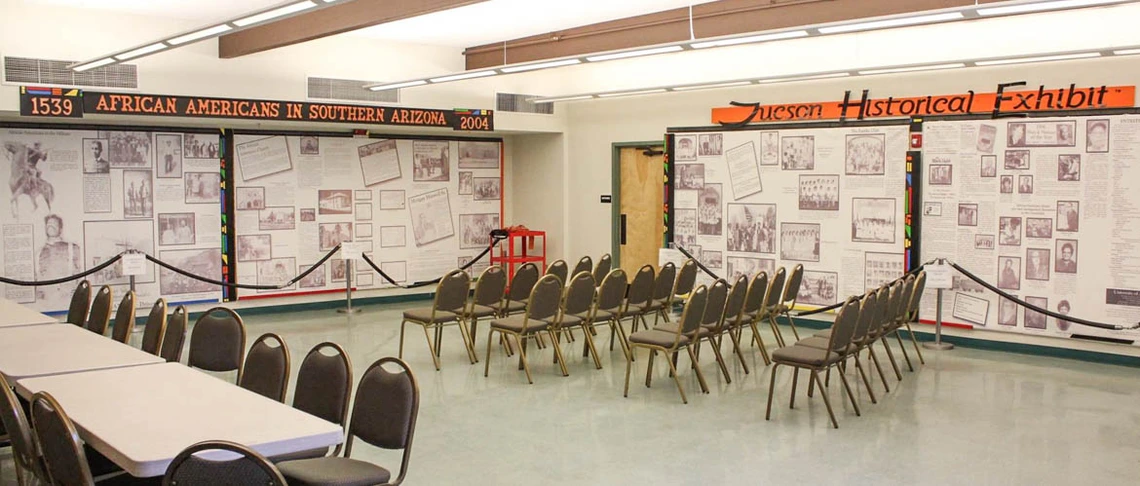The Haury Program Announces Its 2018 Fall Competitive Grant Cycle Awards

The Agnese Nelms Haury Program in Environment and Social Justice (Haury Program) is pleased to announce awards for its Fall 2018 competitive grant cycle.
Partnerships between the University of Arizona (UA) and the community seek to define innovative ways to confront environment and social justice challenges. In the last five years, the Haury Program has awarded more than 30 competitive proposals on topics such as access to clean water, food waste, health alternatives, climate change, resilience among others. The program made awards in three established categories: one visiting associate, three seed grants and three challenge grant finalists who will compete for the Challenge Award in Spring 2019.
Lucas Mullikin from Lucrative Pictures LLC is our most recent Visiting Associate. Stephanie Buechler, UA Geography and Development, will host him as he works on Food Desert, a documentary about nutritional inequality, conscious sourcing, sustainable design and issues with centralized food systems in the US Southwest. The project will connect with farmers, community organizers, nutritionists, researchers, chefs, nonprofits and others to understand the state of America’s diet. Mr. Mullikin will partner with Buechler, Manzo Elementary, UA Community and School Garden Program and Community Gardens of Tucson to explore ways to use community organizations to empower people in the fight against food deserts.
Seed Grants
The seed project Renter Education for Neighborhoods and Tenants (RENT), led by Stacy Butler, UA Law's Innovation for Justice Program in partnership with Step UP to Justice is a 2-year project that works to reduce eviction through early and effective tenant education and empowerment through the efforts of volunteer attorneys and UA students. “Tucson is a Top 25 Evicting City and the downstream effects of eviction hurt our entire community as we bear the social, economic and emotional costs of housing instability and homelessness”, said Ms. Butler, “The RENT Project will combine the education, research and innovation efforts of the Law's Innovation for Justice Program and the excellent civil legal services and community relationships offered by Step Up to Justice to offer terrific opportunities for real-world application of UA's social innovation work.”
Leia Maahs from the Southwest Folklife Alliance is partnering with UA Compost Cats and Startup Unidos to engage communities in research and innovative solutions to food waste management issues in Nogales, Arizona. The project, Waste Not: Borderlands Innovations in Food Waste Management, will help workforce development by engaging youth in research, building community awareness and engagement, and creating business innovation opportunities.
The third seed project, Toward a Vision of Community Wellness: Reclaiming Agency, Self-Care, and Connection to Place, led by Debi Chess Mabie from The Dunbar Coalition, Inc., is a 2-year project which will design, implement, and evaluate a health and wellness education project to reclaim traditions of cultivating food and herbal remedies that provided daily sustenance for people of African and Native American diasporas. The project will be based at Dunbar Pavilion as part of a wider set of resources already present and will empower participants in developing, guiding, and directing positive personal and environmental health outcomes for themselves, their families, and their communities. The Dunbar Coalition is partnering with the UA Center for Regional Food Studies, El Rio Health Centers and African American Coalition for Health and Wellness, Inc.
Challenge Grants
This year applicants proposed 3-year projects offering solutions to meet resistant challenges in education, health, food, water use and resilience. Each finalist team of UA and community members will receive $10,000 to complete a feasibility study and prepare a presentation to a judging panel in April 2019. Judges will select one team to receive the 3-year award. The announcement of the winner will occur during our Celebration of Five Years of Haury Program Impact event on April 24, 2019. Details about our five-years celebration will be announced in the coming months. The challenge grant finalists are:
Safe Water and Health Food for Native Americans Program on Tohono O’odham, Navajo and Hopi Reservations, led by Ed Franklin, UA College of Agriculture and Life Sciences in partnership with Painted Desert Demonstration Projects, Inc. (STAR School), Apex Applied Technology, Inc., Hopi Tutskwa Permaculture Institute, Tohono O’odham Community Action, North Leupp Family Farms, Inc., and Southwest Indian Agricultural Association, Inc.
A Student’s Journey: From a Tribal College to the University, led by Marti Lindsey, UA Southwest Environmental Health Sciences Center in partnership with the Tohono O’odham Community College.
FARMacy Program, led by Elizabeth Sparks, UA Cooperative Extension in partnership with El Rio Health Center, UA Center for Integrative Medicine, Pima County Family Resource Center and Cochise and Santa Cruz County Cooperative Extension.
For more detailed information about these and previous grants, please visit our Awards Database
